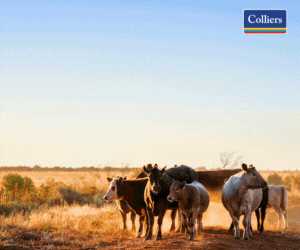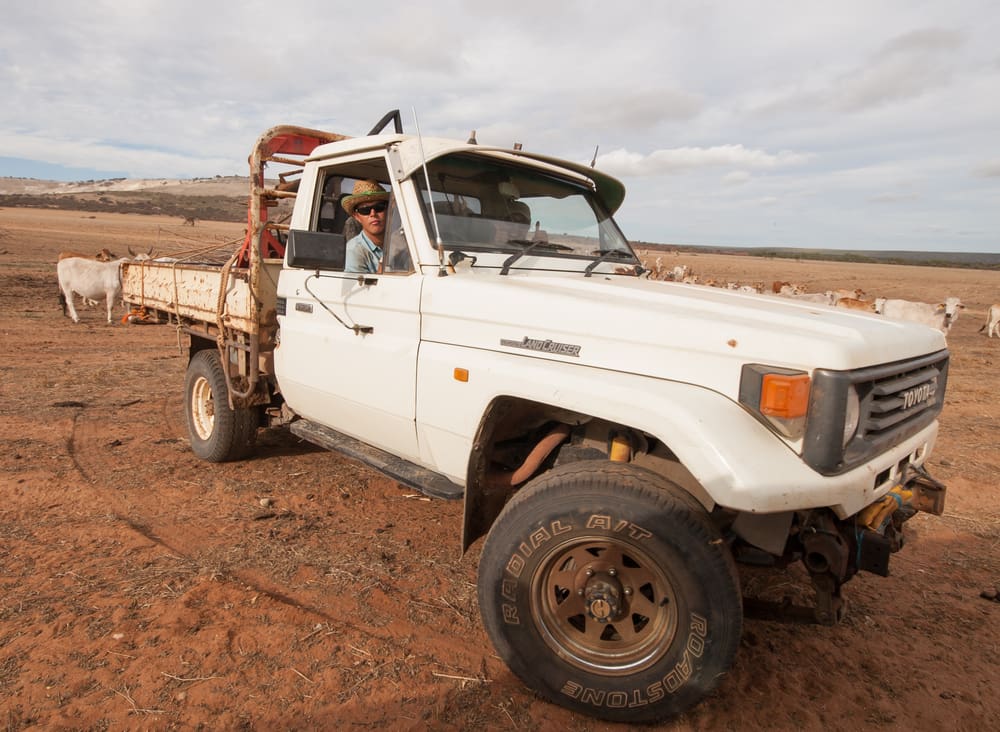WESTERN Australian producers are hoping the traditional winter wet season brings some much needed rain after a hot and dry summer has spurred on a sell-off of livestock.
The current dry spell has collided with the Federal Government’s plans phase out live sheep exports, which is one of its most important markets – causing emotions to run high.
The WA Government yesterday announced an $8.6m assistance package, which drew mixed responses with some producers calling for more funding, others calling for a reversal in the live sheep phase-out and some welcoming the measure.
While most of WA’s southern region predominantly relies on winter rain, Elders’ WA livestock manager Dean Hubbard said an abnormally hot and dry summer in the south-west corner of the state was causing a lot of the current issues.
 “The south-west districts, which are cooler and would expect a little more moisture over summer, have had virtually no rain since September,” Mr Hubbard said.
“The south-west districts, which are cooler and would expect a little more moisture over summer, have had virtually no rain since September,” Mr Hubbard said.
“The whole state is dry, but most of the livestock are in the Great Southern and southern areas. Our average break is around the 14th of May and we are hopeful that some rain will ease the pressure on selling.
“Numbers this spring look like they will be less than the last couple of springs and I would expect the surplus of livestock to be reduced significantly and we can return to a more balanced supply and demand for at least the sheep market.”
Despite the Federal Government planning to phase out live sheep export, numbers of livestock heading out on boats had been reasonably strong over the past year. Many of the boats heading from WA carry sheep and cattle.
However, Mr Hubbard said the boats had slowed in recent months, ahead of the trade’s yearly three-month shutdown for the Northern Hemisphere summer at the end of May.
“We thought the sheep were starting to ramp up again, but I understand the exporters have been struggling to charter vessels with increased activities in South America,” he said.
“We were anticipating far greater demand from live export than we have seen in the past two months, particularly for sheep, because we had some positive signs like sending a boat to Saudi Arabia for the first time in a long-time.”
“The Middle East conflict has had an impact on both live export and chilled lamb going via air.”
Mr Hubbard said some recent sales had shown good signs for the local cattle market.
“We are certainly seeing some positive news in regards to pricing with the cattle markets and we are hoping sheep follow,” he said.
Federal Government can solve WA sheep industry problems
WAFarmers president John Hassell said some people will say the $8.6 million package is not enough and other will say it is too much.
“I think it is the right response at this stage of the game and encourages people to set themselves up for dry conditions in the future, so I don’t have a problem with that.
“But the problem is in a normal situation when things are dry we can put our sheep and cattle on a ship and send them overseas and the ships aren’t here because of the Federal Government’s policy, they’ve already stopped coming,” he said.
“So this is a Federal Government problem, the Federal Government should be trying to fix it.
“And they can do that with freight subsidies to the east, they can get the Qatar Airlines airfreight going and they can reinstate the live sheep trade and say it is not going to be banned,” Mr Hassell said.
“Those are the three things that need to happen, it’s pretty simple.”
Pastoralists and Graziers Association Livestock Committee chairman Chris Patmore said the PGA was generally not in favour of grants and subsidies because they interfere with market forces.
He said there was an oversupply of sheep on the WA market, with a lack of abattoir kill space and reduced live export demand.
“The seasonal conditions aren’t good, but the main problem is the lack of markets for our stock.
“If we could solve that problem the seasonal difficulties would fade into insignificance, because people with an oversupply of stock would be able to sell them,” he said.
“Having the government involved in our industry is not a good thing and the less they’ve got to do with it the better.
“Most of these problems we’ve got at the moment are cause by the Federal Government’s live export phaseout policy and also the lack of airfreight space for (Middle East kill or MK) bag lambs.”
However, Mr Patmore believed that any assistance should be coming from the Federal Government as well, “because they’re the ones generally that have caused the damage.”
“The WA state Agriculture Minister (Jackie Jarvis) is going to be criticised no matter which way she goes; either for wasting taxpayer money or if she does do anything, she will be criticised for that too,” he said.
“At least she is listening and having a try.”




Clearly i understand one is federal and one is state. Its just remarkable that we federally give another 100m to ukraine and 8.6m is the best our state of western Australia can come up with to support our own countrymen and women. Its a tough conversation to have but I do have an issue with handing out tax payer dollars to people who dont help themselves. For example where someone has made no obvious attempt in the last ten years atleast to secure their property from water deficiencies. Cheers Matthew Della Gola